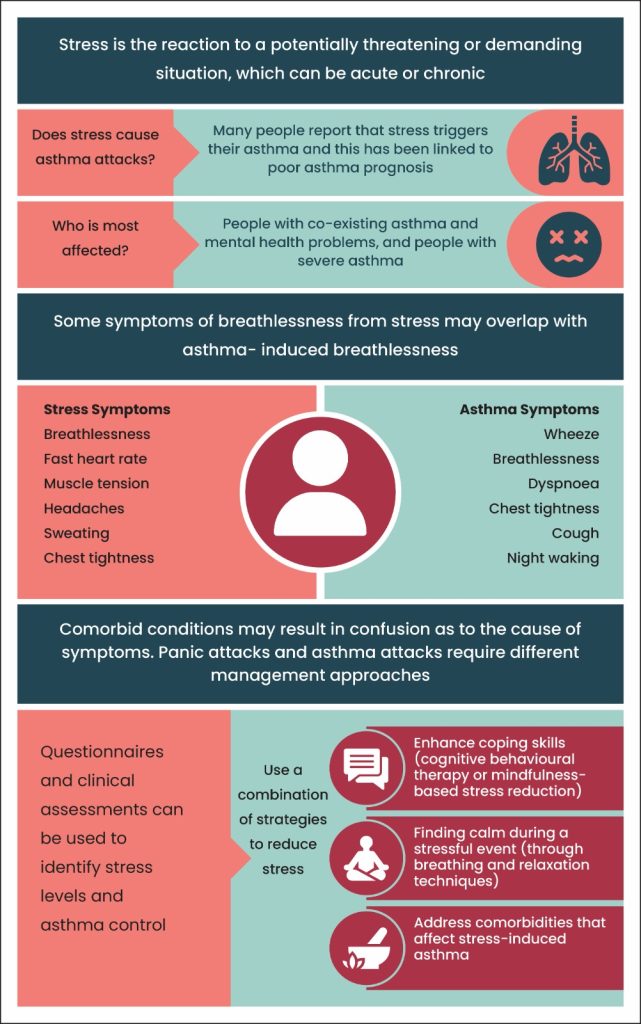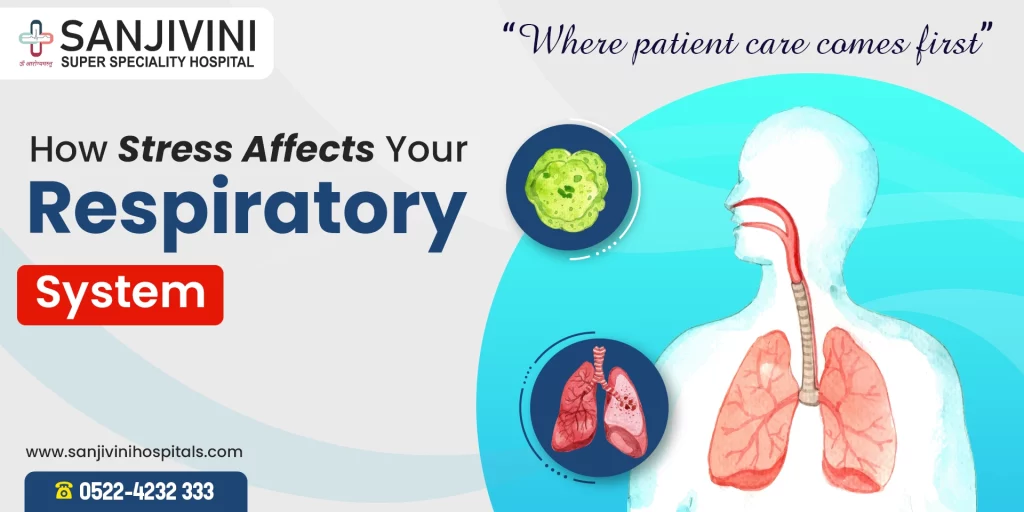In our fast-paced world, stress has become an unwelcome companion, affecting our health in various ways. An often overlooked link exists between stress and the respiratory system. Beyond its impact on mental well-being, stress can intricately influence our breathing patterns and lung health. Recognizing this connection is vital for promoting overall well-being. This blog explores the intricate relationship between stress and the respiratory system, shedding light on How Stress Affects Your Respiratory System.
Stress and Its Impact on the Respiratory System
How Does Stress Affects Your Respiratory System? When stressed, the body releases hormones causing rapid breathing and physiological shifts. For those with cytokines diseases like chronic asthma or lung issues like emphysema, this can worsen symptoms and impede comfortable breathing. Acute stress may even trigger asthma attacks, while chronic stress is tied to reduced pulmonary function. Effectively managing stress is crucial for overall well-being, including maintaining healthy lungs.
Effects of Chronic Stress
Persistent stress can significantly impact respiratory health, elevating the risk of developing and worsening respiratory issues. Stress hormones like adrenaline and cortisol, released during tense moments, can trigger rapid breathing and contribute to symptoms like breathlessness. For those with existing respiratory conditions, chronic stress may worsen breathing problems, causing flare-ups in conditions like asthma or chronic obstructive pulmonary disease (COPD).
Research also indicates a connection between chronic stress and decreased pulmonary function, making comfortable breathing more challenging. Effective stress management is crucial for sustaining respiratory health and overall well-being. Achieve this through relaxation techniques, regular exercise, ample sleep, and adopting a healthy lifestyle, prioritizing stress reduction.
Coping Mechanisms for Stress
Effectively managing stress is crucial for maintaining overall well-being. Various coping mechanisms can aid in this process. Engage in meaningful activities, open up about your stressors, and practice relaxation techniques like deep breathing and progressive muscle relaxation. Incorporating regular exercise, a balanced diet, and sufficient sleep into your routine is essential for managing stress and preserving respiratory health. Explore breathing exercises for relaxation. Connect with supportive individuals and make time for hobbies to reduce stress and enhance overall well-being.

When to consult a healthcare professional
Consult with renowned pulmonologist Dr. S.N. Gupta at Sanjivni Super Specialty Hospital, Lucknow, if:
- You persistently experience respiratory symptoms like shortness of breath, rapid breathing, or chest tightness, despite managing stress.
- Your pre-existing respiratory condition, such as asthma or COPD, worsens with stress.
- You have a history of stress-triggered asthma attacks.
- Managing stress proves challenging, impacting your respiratory health.

